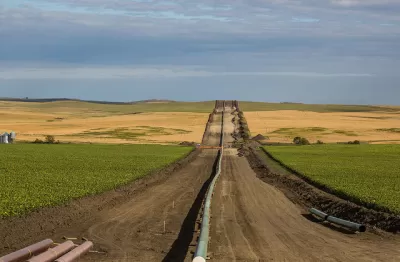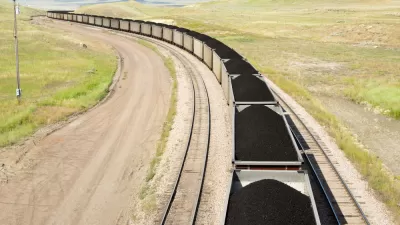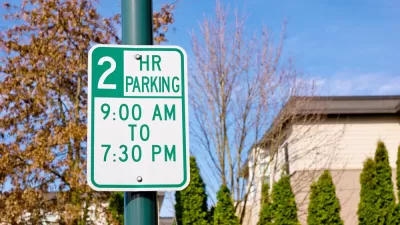The Iowa Supreme Court affirmed a lower court ruling that found that the Iowa Utilities Board was justified in giving the private owners of the Dakota Access Pipeline the use of eminent domain. Climate change was considered in the ruling.

The May 31 ruling by the Iowa Supreme Court comes one day shy of the two-year anniversary of the opening of the 1,172-mile Dakota Access Pipeline, which transports volatile Bakken shale crude from North Dakota through South Dakota and 18 counties in Iowa to a distribution hub in Patoka, Illinois (see map). A ruling against the Iowa Utilities Board could have shut down the $3.8 billion pipeline, built by Dallas-based Energy Transfer Partners, that transports 470,000 barrels of oil per day.
"The ruling affirms a [February 15,] 2017 ruling by Polk County District Court Judge Jeffrey Farrell, who found that the pipeline's builders acted lawfully in using Iowa's eminent domain laws to seize private land," writes courthouse reporter, Stephen Gruber-Miller, for the Des Moines Register.
Judge Farrell had denied the request for judicial review brought by the Iowa Chapter of Sierra Club and a group of 14 Iowa landowners who were ordered to pay court costs.
The appeal was brought by the private individuals, the Northwest Iowa Landowners Association, the Iowa Farmland Owners Association, Inc., and the Sierra Club against the Utilities Board, Dakota Access, LLC, a subsidiary of Energy Transfers Partners, and the Iowa Office of Consumer Advocate. The appellants claimed that the pipeline did not meet the “public convenience and necessity” requirement for eminent domain under the Iowa constitution.
"We are devastated. How can a Texas company be allowed to seize my family farmland for their profit?" said Dick Lamb, a Boone County farmer who sued over the pipeline.
Reminiscent of Kelo decision
Seizing private land to benefit a private company is inherently controversial. In Kelo v. New London (2005), the U.S. Supreme Court wrestled with the definition of what served a "public purpose" in the Takings Clause of the Fifth Amendment and the Due Process Clause of the Fourteenth Amendment, ultimately deciding 5-4 that the city's economic development plan served a "public purpose" under the "public use" provision of the U.S. Constitution. However, the Iowa Supreme Court did not apply the Kelo case in their ruling. Safety and economics, on the other hand, weighed heavily in the court's opinion.
"In sum, because we do not follow the Kelo majority under the Iowa Constitution, we find that trickle-down benefits of economic development are not enough to constitute a public use. " wrote Justice Edward Mansfield in the court's majority opinion [pdf].
While the pipeline is undeniably intended to return profits to its owners, the record indicates that it also provides public benefits in the form of cheaper and safer transportation of oil, which in a competitive marketplace results in lower prices for petroleum products.
Mansfield cited an Illinois appellate court case, "which we find persuasive": Enbridge Energy (Illinois), L.L.C. v. Kuerth [pdf] (2018):
Oil, natural gas, and other energy sources are essential to modern American life and must be transported from production facilities to refineries and ultimately to consumers. Pipelines are necessary for this transportation and are often safer and more efficient than transportation by train or truck.
The safety issue may be familiar to Planetizen readers who followed a slew of tragic crude-by-rail explosions associated with Bakken crude, known for its high volatility, beginning in the summer of 2013 when an unmanned, 72-car oil train carrying Bakken shale crude traveled 7 miles to Lac-Mégantic, Quebec, pop. 6,000, where it derailed, setting off a fireball downtown and killing 47 people.
On the other hand, Carolyn Raffensperger, chair of the Iowa Chapter of the Sierra Club, emphasized in a chapter blog on June 1 that “any spill that happens from the pipeline will destroy the true public necessity - clean drinking water and a healthy environment... It is not a matter of if a spill will happen, but when.”
Energy Transfer Partners response
“The court correctly found that Iowans and the Iowa economy benefit from safe, efficient transportation of important fuels and fuel stock," stated Lisa Dillinger, spokeswoman with Energy Transfer, in an email to Mitchell Schmidt, who covers transportation, energy, and infrastructure for the Cedar Rapids, Iowa-based Gazette.
"The board reviewed a massive record in finding that the Dakota Access pipeline serves the public interest. And while we reached voluntary agreement with all but a handful of landowners for easements, we are glad the court made the important ruling that a handful of objectors cannot block major infrastructure projects.”
Climate change consideration
One of the more interesting aspects of the ruling was directed at the Sierra Club which has fought the pipeline since it was proposed in 2014.
"Although the Supreme Court acknowledged that climate change is a serious threat, they still ruled against the Sierra Club," said Raffensperger in the aforementioned blog.
"This shows how much work we still have to do to protect the climate in face of the fossil fuel extravaganza and its ecologically damaging existential threat to our planet."
However, Justice Mansfield went beyond recognizing climate change as a threat. He also suggested a tool, a carbon tax, to address it.
We recognize that a serious and warranted concern about climate change underlies some of the opposition to the Dakota Access pipeline. Maybe, as a matter of policy, a broad-based carbon tax that forced all players in the marketplace to bear the true cost of their carbon emissions should be imposed. The revenues from this broad-based tax could be used to offset other taxes. But policy making is not our function...
The majority opinion bore a resemblance to the outcomes of several lawsuits last year directed at oil companies, holding them accountable for climate change and sea level rise.
Related in Planetizen:
-
The Dakota Access Pipeline Now Pumping Oil, June 2, 2017
-
Why are Crude Oil Trains Exploding Across North America? January 8, 2014.
Hat tip to InsideClimate News.
FULL STORY: Dakota Access pipeline was justified in using eminent domain, Iowa Supreme Court rules

Planetizen Federal Action Tracker
A weekly monitor of how Trump’s orders and actions are impacting planners and planning in America.

Chicago’s Ghost Rails
Just beneath the surface of the modern city lie the remnants of its expansive early 20th-century streetcar system.

San Antonio and Austin are Fusing Into one Massive Megaregion
The region spanning the two central Texas cities is growing fast, posing challenges for local infrastructure and water supplies.

Since Zion's Shuttles Went Electric “The Smog is Gone”
Visitors to Zion National Park can enjoy the canyon via the nation’s first fully electric park shuttle system.

Trump Distributing DOT Safety Funds at 1/10 Rate of Biden
Funds for Safe Streets and other transportation safety and equity programs are being held up by administrative reviews and conflicts with the Trump administration’s priorities.

German Cities Subsidize Taxis for Women Amid Wave of Violence
Free or low-cost taxi rides can help women navigate cities more safely, but critics say the programs don't address the root causes of violence against women.
Urban Design for Planners 1: Software Tools
This six-course series explores essential urban design concepts using open source software and equips planners with the tools they need to participate fully in the urban design process.
Planning for Universal Design
Learn the tools for implementing Universal Design in planning regulations.
planning NEXT
Appalachian Highlands Housing Partners
Mpact (founded as Rail~Volution)
City of Camden Redevelopment Agency
City of Astoria
City of Portland
City of Laramie




























